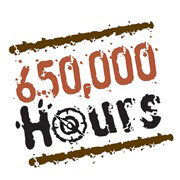Last summer, my neighbors Marianna and Sándor Subert embarked on a cross-country road trip with an altruistic twist. After driving their 2006 Volvo S40 from Virginia to California, they ended their two-week trek by donating the car to Goodwill in San Francisco, an experience I wrote about for Travel + Leisure.
Meaningful travel will likely be a post-pandemic trend, but the Suberts' trip also revealed the power of anticipation. Researching their journey, Marianna found, was exciting — “like we were living the trip just by planning it.” This is a common reaction: Studies show we get a bigger rush waiting for an experience like a cruise or a trip to Disneyland (well, unless you hate Disney) than we do for material goods.
“Trips don’t just make us happy while we’re on them,” explains Amit Kumar, an assistant professor of Marketing and Psychology at the University of Texas at Austin. “They can make us happy before we get on the plane or go on a hike or play on the beach.”
As we ponder our post-pandemic lives, here’s a suggestion. Instead of buying more stuff, spend money on a trip. Or a concert (remember those?). Or a family dinner. Paying for experiences makes us happier than buying material goods, research shows, and once we start traveling again, we’ll likely experience a “happiness reset”: Small trips that may have seemed routine before the pandemic — like a weekend trek to the beach — might feel like an exotic jaunt to Bora Bora, a New York Times piece explains.
So start planning to go somewhere even if you can’t go anywhere. The mere anticipation may boost your mood. As wise bear Winnie the Pooh once noted, the moment before you eat the honey is often better than when you do.
Ken Budd is the author of The Voluntourist and the host of 650,000 Hours. His bylines include The Washington Post Magazine, The Atlantic, National Geographic Traveler, and many more. His work also appears in the 2020 edition of The Best American Travel Writing. This essay originally ran in the 650,000 Hours newsletter.
Lake Blanche in Utah was an unexpected stop on the Suberts’ road trip.


